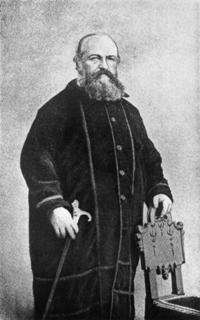A Quote by Dhul-Nun al-Misri
The body's weakness comes from illnesses, while the heart's weakness comes from sins. And just as the body does not taste the delights of food when it is ill, the heart does not taste the delights of worship when it is sinful.
Related Quotes
Mortifying the deeds of the body cannot be understood of the religious deeds of the body, for they are to be cherished, nor of the natural deeds of the body such as eating and drinking; but it refers to the sinful actions that are done by the body arising from the temptations and injections of Satan or the corrupt dictates of our own sinful heart.
I earnestly wish to point out in what true dignity and human happiness consists. I wish to persuade women to endeavor to acquire strength, both of mind and body, and to convince them that the soft phrases, susceptibility of heart, delicacy of sentiment, and refinement of taste, are almost synonymous with epithets of weakness, and that those beings are only the objects of pity, and that kind of love which has been termed its sister, will soon become objects of contempt.
Heart lesson #3: post-heartbreak survival. The heart is resilient, I mean literally. When a body is burned, the heart is the last organ to oxidize. While the rest of the body can catch flame like a polyester sheet on campfire, it takes hours to burn the heart to ash. My dear sister, a near-perfect organ! Solid, inflammable.
It’s not the body that people love, but the soul. The body is a temporary vehicle. Without the soul, the body is like a car without a driver. I see through my eyes, smell through my nose, taste through my tongue, hear through my ears, feel through my skin, think through my brain, and love through my heart. But who am I? Who is the witness, enjoyer and sufferer that activates my body?
If you saw me with my clothes off you'd see that my body is in great shape and ready to take on the world.... I could snap my fingers and have any man I wanted, but I have too much respect for myself for that.... People can look then wonder about the taste and the sensuous delights of the dish, but when it comes down to it they simply can't afford such an expensive luxury.
A good taste in art feels the presence or the absence of merit; a just taste discriminates the degree--the poco piu and the poco meno. A good taste rejects faults; a just taste selects excellences. A good taste is often unconscious; a just taste is always conscious. A good taste may be lowered or spoilt; a just taste can only go on refining more and more.
































